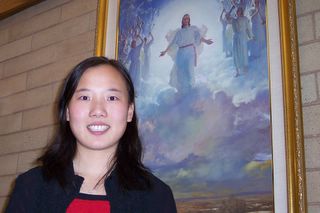I recently initiated a rather interesting conversation with a man by the name of Tad Hargrave on the Isle of Skye in Scotland. He keeps several weblogs, one of which caught my attention during a search of websites addressing issues related to indigenous people. He calls the blog “Healing Whiteness: an Exploration into the Gaelic Indigenous Soul.” He poses an intriguing question, “Are White people indigenous?” By extension, if White people are indigenous, what do they share in common with other indigenous cultures around the world, including Native Americans?
His blog rekindled an old concept for me. Several years ago, I taught high school social studies at the Medicine Wheel Academy of Spokane and attempted to infuse a Native perspective into the state curriculum as much as possible. I engaged the students in lessons designed to raise their awareness of belonging to a global indigenous community, and not just a North American tribe. Many of my students never considered indigenous issues beyond the circle of their immediate social contacts. Throughout the year, I introduced them to indigenous peoples and concepts in Mexico, Russia, Australia, Scandinavia, Hawaii, Africa, and the British Isles.
That time in my life was transformational. My awareness of my own indigenous identity grew, along with my students.
As we expanded the circle of inclusion among the world’s indigenous peoples, we were forced to re-examine old assumptions and racial stereotypes. For example, in the Plateau Salish language, we usually refer to White people as “suyepi,” which has evolved into a semi-derogatory term over the years. An old Plateau legend attributes this name to the first Whites ever encountered by the Salish, who were French trappers. They looked so strange to my ancestors that they called the newcomers something akin to “Upside-Down-Face, (suyepi)” because of their long beards and bald heads. The White people also seemed very “upside down” in their customs and mannerisms; speaking in forked tongues and disrespecting the environment. In time, the word “suyepi” tended to sound disparaging, rather than respectful. With this history in mind, my students began to question if all White people are really “suyepi,” or backwards. Perhaps they could find a more noble term to describe our White allies.
In our language, Indian people refer to themselves as “sqelixw.” This term means something like “real people,” as opposed to the animal people or the plant people. We might also say “sqelixw” means “human being.” Before the European contact, we simply called ourselves the People, Real People, or human beings, with no need to differentiate because of race. However, when White people arrived, they seemed so totally dissimilar that they assumed a different name (“suyepi” as described above). After the contact, we called ourselves the Real People, and the others were the Upside-Down-Faces.
But aren’t suyepis also people? Why would Indians be the only “Real People” on the planet?
My class struggled with this concept for several months. Some of my students didn’t seem to care, but others did not want to see any hint of racism in our culture. But if the current word for Indian is “sqelixw” (human being) what do we call White people? We finally found an answer from an old tribal elder on the Flathead Reservation in Montana.
The Flathead of Montana speak a dialect very similar to our own. During our Salish class, we were watching a video from the Flathead Reservation that included interviews of tribal elders in the Salish language. One old man talked about his experiences with white people, but instead of calling them suyepi, he called them “piq sqelixw.” The phrase hit me like a bolt of lightening…it was so simple! In our language, “piq” means white, and so he literally called them “White Human Beings.” It sounded so dignified, respectful, and perfect.
Since that time, I have worked to build bridges of understanding between cultures and communities. I believe the indigenous identity at the root of all cultures is one way to connect people of many ethnicities and identities. Tad’s weblog reminded me of this ideal.

